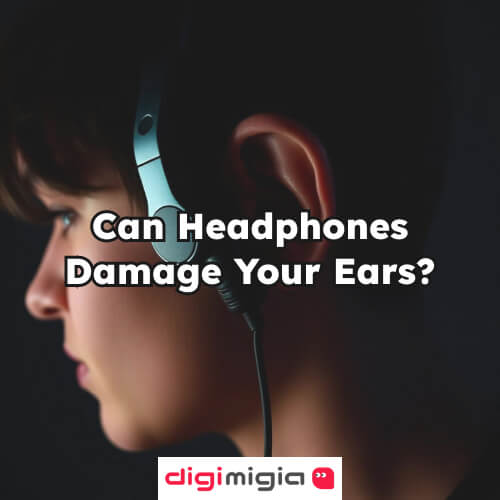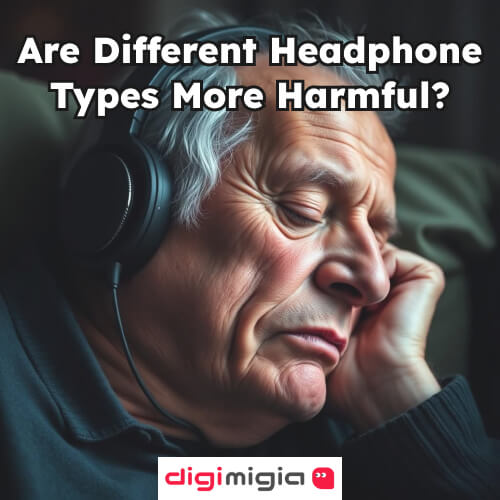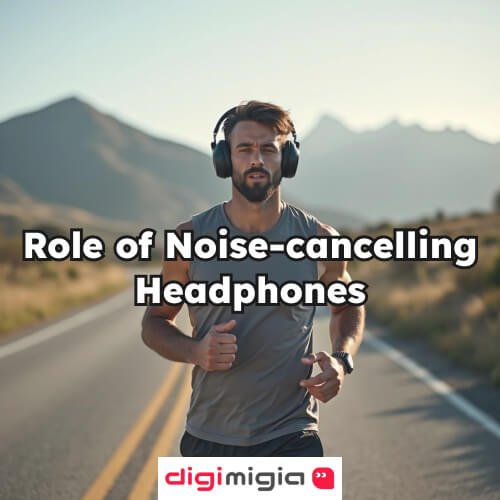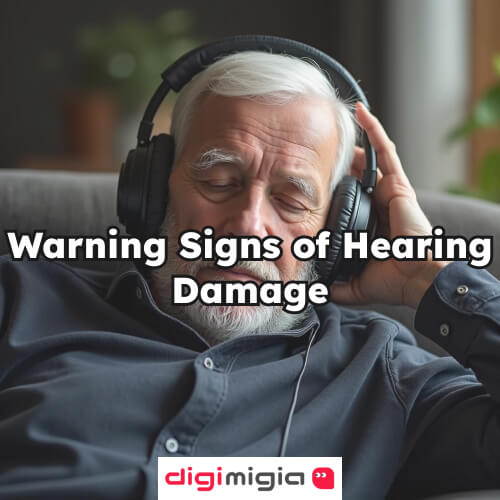Can Headphones Damage Your Ears? Does Headphones damage ear?

Headphones play a big role in our everyday lives. We use them to enjoy music and podcasts, join video calls like Zoom, and watch TV shows or movies. People of all ages use headphones regularly, from young children to older adults and everyone in between, but it’s important to use them responsibly to avoid potential hazards. Can headphones damage your ears? Using headphones every day can be harmful to your hearing, leading to issues like hearing loss. Therefore, it’s important to use them in a safe and responsible way. Let Digimigia tell you more about the types of headphones that can be harmful to the ears and the warning signs of hearing damage from headphones in the following parts of this blog.
Are Different Headphone Types More Harmful?
Fortunately, many apps and devices give a warning when the volume becomes dangerous. However, most people usually ignore these warnings. To really protect your hearing, make sure your headphones are set to no more than 60 percent of their highest volume level. Can headphones damage your ears even if they are in different types? Different kinds of headphones don’t automatically cause more harm. Do headphones cause hearing loss at low volume? The chance of hurting your hearing from using headphones mainly comes from how loud the sound is and how long you listen, not from the kind of headphones you use. Let us compare In-ear vs over-the-ear headphones, and noise-cancelling headphones in order to help you to choose the best one.

In-ear vs Over-the-ear Headphones
In-ear and over-the-ear headphones are two of the most common audio devices people use. Each has its own advantages and disadvantages, which can make it hard to choose the best one that has less harmful attack for your hearing. The right headphones can really make a big difference. While In-ear headphones are common these days, we want to warn you about using them too much. There are a few reasons for that.
- First, since they send sound straight into the ear canal, there’s a higher chance of hurting your ears if you turn the volume up too high. There’s no natural barrier between the sound and your ears, which makes it easier to damage them.
- Plus, In-ear headphones can push earwax further into the ear, leading to blockages. This can make it harder to hear, so you might end up increasing the volume even more.
Over-the-ear headphones are a better option. You don’t have to worry about sound going straight into your eardrums, and they’re usually more comfortable than earbuds. Plus, many high-quality headphones come with noise-canceling features, which means you can keep the volume lower. It’s not practical or fair to ask people to stop listening to music. But there’s no reason we can’t take steps to protect our hearing while still enjoying music. Keeping the volume down and limiting how long you listen is the first step. As a second step, we recommend using over-the-ear headphones instead of In-ear headphones.
Role of Noise-cancelling Headphones
If your audio equipment is better at blocking out background noise, whether through active noise cancellation (ANC) technology or by fitting closely around or on the ears, it might be more effective at helping to protect your hearing. Noise cancellation helps reduce unwanted sounds, which means you might not need to increase the volume. That said, it’s important to use these headphones in a safe setting where you can still hear important sounds like alerts or emergency signals. Noise-cancelling headphones can lower the chance of turning up the volume, which can lead to hearing damage. However, they aren’t a form of hearing protection. It is better to use proper hearing protection in noisy environments, such as concerts and certain workplaces.

Warning Signs of Hearing Damage
Hearing loss can be hard to notice because it often starts quietly and gets worse over time. We suggest you speaking with your doctor if you experience these signs. These are ear damage from headphones symptoms:
- A ringing or buzzing sound in your ears (tinnitus)
- Hearing sounds as if they’re muffled
- Trouble understanding what people are saying
- Needing to turn up the volume on your TV or other devices
- Ear pain or a feeling of discomfort
- Temporary hearing loss after using headphones, earphones, or earbuds

Conclusion
Headphones and earbuds are both good for listening to music, but each has its own advantages and disadvantages. They are often compared in different situations, like which is better for gaming or working out. This article on Digimigia took a look at the question of ‘Can headphones damage your ears’ in order to help you buy the best type of headphones that create less hearing damage. It is also helpful to know how to prevent hearing loss from headphones.

